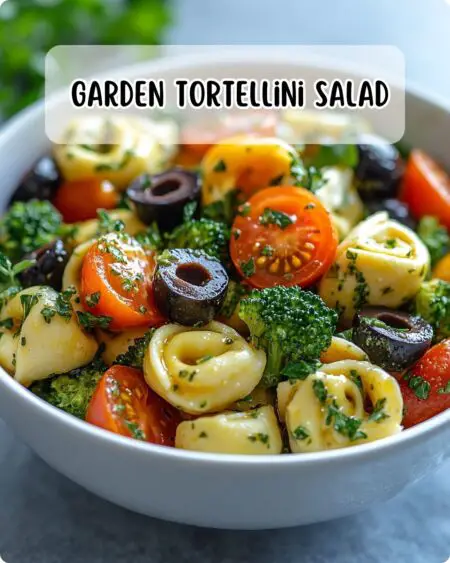Introduction
In the pursuit of a healthier lifestyle, the significance of a balanced and nutritious diet cannot be overstated. A well-structured diet not only plays a pivotal role in achieving sustainable weight loss but also acts as a cornerstone for overall well-being. The choices we make in our daily meals have far-reaching effects on our energy levels, mental clarity, and physical health. In this exploration of healthy foods for weight loss, we delve into the foundations of a nourishing diet, emphasizing the importance of making mindful and wholesome choices.
Foundation of a Healthy Diet: Whole Foods and Nutrient Density
The Essence of Whole Foods:
Whole foods form the bedrock of a nutritious diet. These are foods that are as close to their natural state as possible, unprocessed and rich in essential nutrients. Fruits, vegetables, whole grains, and legumes are not only packed with vitamins and minerals but also offer a myriad of health benefits. Their high fiber content promotes digestive health, helps control blood sugar levels, and contributes to the feeling of fullness, aiding in weight management.
Nutrient-Dense Options:
Nutrient density is a key concept in crafting a diet that supports weight loss. Nutrient-dense foods provide a high concentration of vitamins, minerals, and other essential nutrients per calorie. Leafy greens, berries, nuts, and seeds are exemplary examples of nutrient-dense options. Incorporating these foods into your diet not only nourishes your body but also helps satisfy hunger, reducing the likelihood of overeating.
Lean Proteins: Building Blocks for Weight Loss
The Role of Lean Proteins:
Proteins are the building blocks of the body, and their importance in a weight loss journey cannot be overstated. Lean protein sources play a crucial role in supporting muscle health, especially during periods of calorie restriction. Muscle tissue is metabolically active, meaning it burns more calories at rest compared to fat tissue. By incorporating lean proteins, individuals can help preserve muscle mass, facilitating more effective weight loss.
Variety of Protein-Rich Foods:
Diversifying protein sources ensures a well-rounded and enjoyable approach to weight management. Options like skinless poultry, fish, lean cuts of meat, tofu, beans, and low-fat dairy products offer a range of flavors and textures. These protein-rich foods not only contribute to the feeling of fullness but also provide essential amino acids necessary for various bodily functions.
In the next sections, we’ll explore the role of fiber-rich foods and smart carbohydrates in promoting satiety and sustained energy, creating a holistic approach to weight loss through nutrition.
Fiber-Rich Foods: Satiety and Digestive Health
Benefits of Dietary Fiber:
Dietary fiber is a nutritional powerhouse that plays a pivotal role in weight loss. One of its primary benefits is promoting feelings of fullness and satiety. High-fiber foods require more chewing, slowing down the eating process and allowing the body to register fullness more effectively. Additionally, fiber absorbs water, expanding in the stomach and creating a sense of fullness that persists, reducing overall calorie intake.
Contribution to Digestive Health:
Beyond its role in weight management, dietary fiber is essential for maintaining optimal digestive health. Fiber adds bulk to the stool, preventing constipation and promoting regular bowel movements. Soluble fiber, found in foods like oats and beans, can help lower cholesterol levels, contributing to cardiovascular health. A diet rich in fiber is associated with a lower risk of various digestive issues, making it a cornerstone of a healthy eating plan.
High-Fiber Foods for Weight Loss:
- Whole Grains: Opt for whole grains like quinoa, brown rice, and oats, which are rich in fiber and provide sustained energy.
- Legumes: Beans, lentils, and chickpeas are excellent sources of both protein and fiber, making them ideal for weight management.
- Fruits and Vegetables: Incorporate a colorful array of fruits and vegetables into your diet. These not only provide essential vitamins and minerals but also contribute to your daily fiber intake.
Smart Carbohydrates: Choosing Complex over Simple
Understanding Carbohydrates:
Carbohydrates are a primary source of energy for the body, but not all carbs are created equal. Complex carbohydrates and simple carbohydrates differ in their structure and how the body processes them. Complex carbs, found in whole grains, legumes, and vegetables, contain longer chains of sugar molecules, providing sustained energy and preventing rapid spikes and crashes in blood sugar levels.
Smart Carbohydrates for Sustained Energy:
- Whole Grains: Choose whole grains such as quinoa, barley, and whole wheat, which contain complex carbs and offer a steady release of energy.
- Vegetables: Non-starchy vegetables like leafy greens, broccoli, and peppers are rich in complex carbs, fiber, and various nutrients.
- Legumes: Beans, lentils, and peas are not only excellent sources of protein but also provide complex carbs for lasting energy.
Balancing Carbohydrates in the Diet:
While complex carbohydrates are emphasized for sustained energy and weight management, it’s essential to balance them with other macronutrients. Incorporating lean proteins and healthy fats into meals helps create a balanced and satisfying eating plan. Choosing whole, minimally processed foods over refined and sugary options supports overall health and contributes to effective weight loss.
In the following sections, we’ll explore the role of healthy fats and discuss the importance of mindful eating habits, rounding out our comprehensive guide to healthy foods for weight loss.
Healthy Fats: A Key to Balanced Nutrition
Dispelling Myths about Fats:
In the quest for weight loss, there has been a historical tendency to demonize fats. However, not all fats are created equal, and healthy fats are an essential component of a balanced diet. Dispelling the myth that all fats are detrimental to weight loss is crucial. Healthy fats play a vital role in supporting various bodily functions, including hormone production, nutrient absorption, and brain health. By incorporating the right sources of fats into the diet, individuals can promote overall well-being and enhance their weight loss efforts.
Sources of Healthy Fats:
- Avocados: Rich in monounsaturated fats, avocados provide a creamy texture to dishes and contribute to feelings of satiety.
- Nuts and Seeds: Almonds, walnuts, chia seeds, and flaxseeds are excellent sources of healthy fats, fiber, and essential nutrients.
- Oily Fish: Salmon, mackerel, and sardines contain omega-3 fatty acids, which support heart health and may aid in weight loss.
- Olive Oil: Extra virgin olive oil is a staple of the Mediterranean diet, offering monounsaturated fats and antioxidants.
- Coconut Oil: While high in saturated fats, coconut oil has unique fatty acids with potential metabolic benefits when used in moderation.
Mindful Eating Habits: Portion Control and Conscious Choices
Importance of Mindful Eating:
Mindful eating is a practice that encourages being fully present and engaged during meals. This approach fosters a deeper connection with the eating experience, allowing individuals to savor flavors, recognize hunger and fullness cues, and make conscious food choices. By cultivating mindfulness in eating habits, individuals can develop a healthier relationship with food and support their weight loss goals.
Tips for Mindful Eating:
- Savor Each Bite: Take the time to chew and savor each bite, appreciating the flavors and textures of the food.
- Listen to Hunger Cues: Pay attention to your body’s hunger and fullness signals. Eat when you’re hungry and stop when you’re satisfied.
- Eliminate Distractions: Minimize distractions during meals, such as electronic devices or television, to focus on the act of eating.
- Portion Control: Be mindful of portion sizes, using smaller plates and bowls to help regulate food intake.
- Make Conscious Choices: Consider the nutritional value of foods and make conscious choices that align with your health and weight loss goals.
In the concluding sections, we’ll summarize the key takeaways from our exploration of healthy foods for weight loss and emphasize the importance of incorporating these principles into a sustainable and enjoyable lifestyle.






